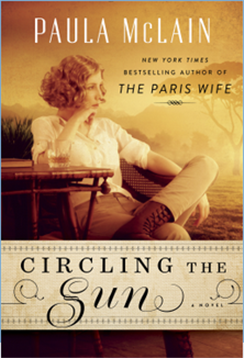 Best of Five!
Best of Five!
When it was republished in the 1980’s, West with the Night was controversial because of Markham’s third ex-husband’s claim to have written most of the book and allegations by people who knew Markham that she was practically illiterate. In her biography of Markham, Mary S. Lovell effectively refutes these allegations, noting particularly that nothing like this was said the first time it was published and that part of the manuscript was submitted to a publisher before she met her third husband.
Actually, I don’t think anyone but Beryl Markham could have written West with the Night. It is beautifully written, with evocative descriptions of Africa and insights into her own thinking. It is not an autobiography. Most of the intimate details of her life are left out. We do not hear, for example, that when her father first left British East Africa for Peru, she was married to her first husband.
Instead, West with the Night is a series of recollections about Markham’s childhood and life in Africa, ending just after she flew across the Atlantic by herself. The book is deeply interesting and thought-provoking. Here and there she interjects a few stories told to her by natives. She was a remarkable woman, both Kenya’s first woman horse trainer and one of the world’s first woman pilots, the first person to fly east to west over the Atlantic (the more difficult direction).
West with the Night is sometimes compared to Out of Africa, written by her friend Karen Blixen (Isak Dinesen), but I find Markham’s book to be much better. It is both simply written and full of understated emotion.



 I feel as if Beryl’s character and other facts are somehow sanitized for our easier acceptance. Although some expression is given to her impatience of convention and yearning for freedom, McLean still portrays her as a woman who wants acceptance and love. I’m guessing, for example, that her abandonment by her mother at a young age left her with few mothering skills and her lifestyle left her with little desire to be a mother. Some sources I consulted said she willingly abandoned her son to her mother-in-law, but in McLain’s book, she is grief-stricken when the child is taken away from her. That tells me that McLain can’t imagine a different reaction to motherhood than the typical one. I think McLean mentions the qualities that made Markham different without really understanding them.
I feel as if Beryl’s character and other facts are somehow sanitized for our easier acceptance. Although some expression is given to her impatience of convention and yearning for freedom, McLean still portrays her as a woman who wants acceptance and love. I’m guessing, for example, that her abandonment by her mother at a young age left her with few mothering skills and her lifestyle left her with little desire to be a mother. Some sources I consulted said she willingly abandoned her son to her mother-in-law, but in McLain’s book, she is grief-stricken when the child is taken away from her. That tells me that McLain can’t imagine a different reaction to motherhood than the typical one. I think McLean mentions the qualities that made Markham different without really understanding them.